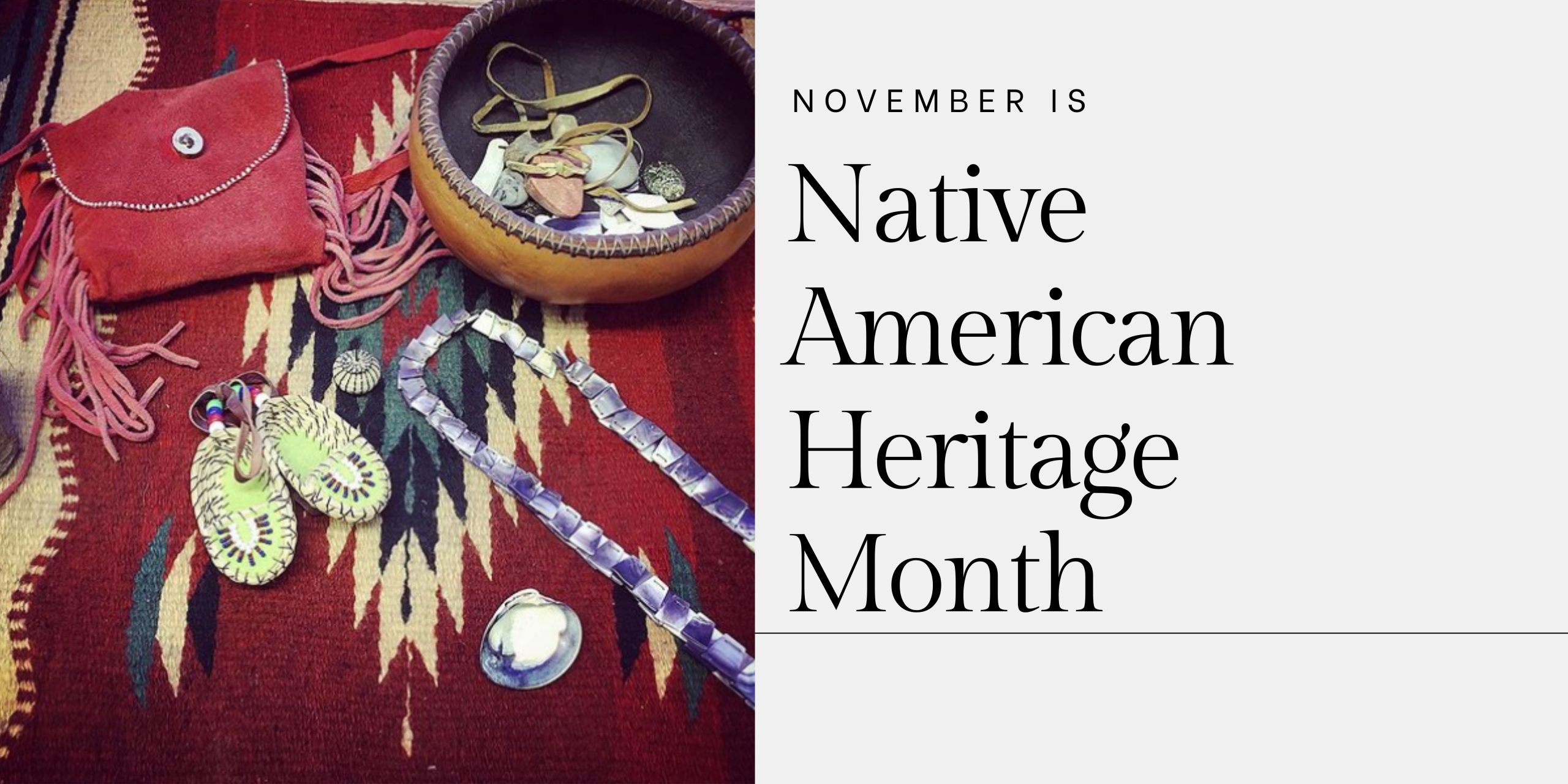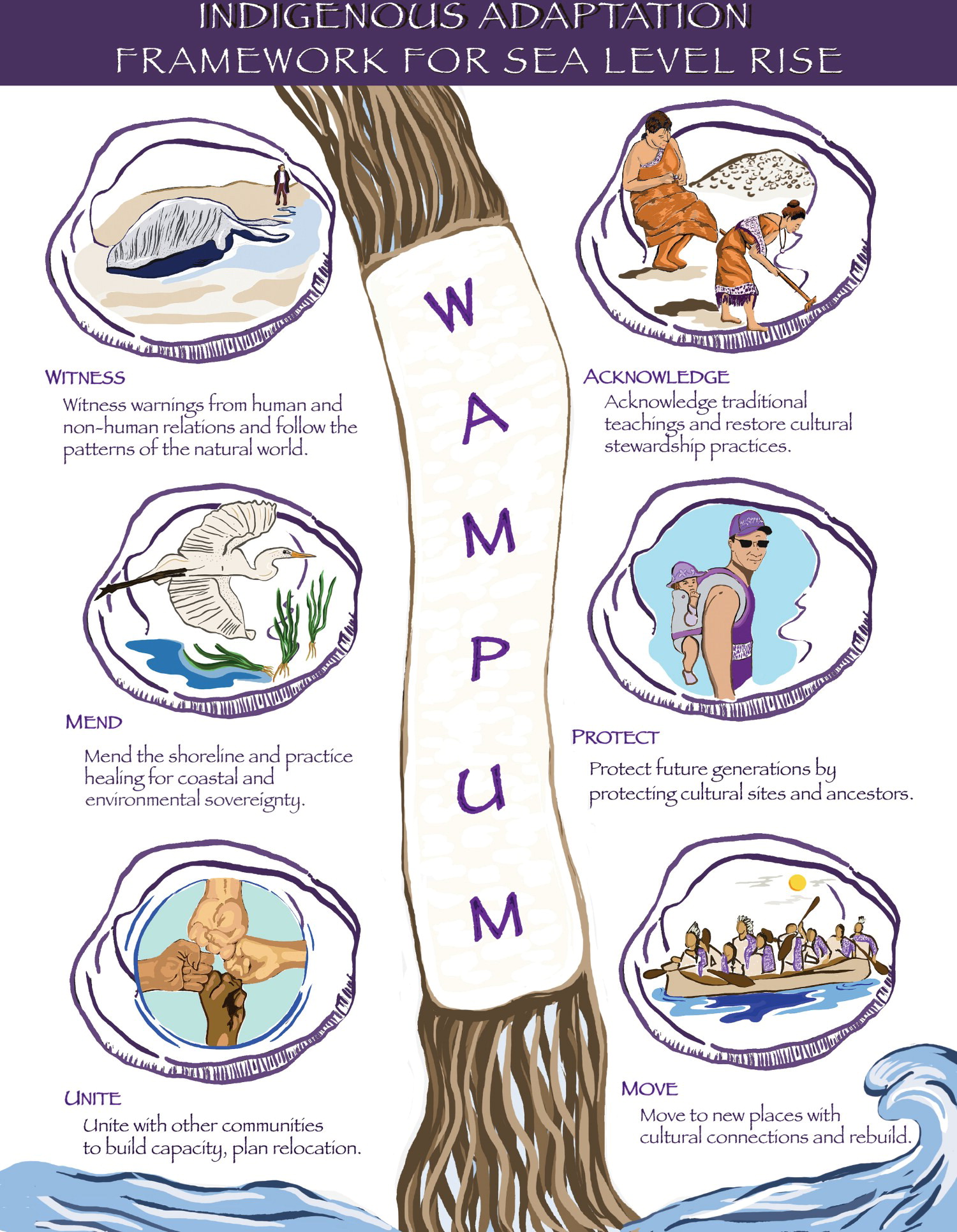
November is Native Heritage Month, celebrating and honoring the rich histories and traditions of Indigenous peoples. Rhode Island’s coastal and marine areas are a part of the ancestral homelands of the Narragansett, Nipmuc, Wampanoag, and Niantic nations. Indigenous peoples from many nations continue to live, study, and work in what we call Rhode Island today. The amplification of Native voices and histories is crucial to rectifying the many violent legacies of colonialism, and we gratefully acknowledge the ongoing critical contributions of Indigenous people across our state, region, and nation.
“There is no Rhode Island history WITHOUT Narragansett and other Indigenous history.” – Lorén Spears, Executive Director of the Tomaquag Museum

Our Relationship with Rising Seas
Dr. Kelsey Leonard of the Shinnecock Nation kicks off URI’s Honor Colloquium by discussing how tribal nations feel the impacts of climate change more acutely and how adaptation frameworks should include Indigenous values to be more holistic, inclusive, and effective.
To imagine what sea level rise adaptation would look like if it was designed with Indigenous values, she said, is to be critical of how we, as humans, understand our presence in the environment.
To achieve this, Leonard has been working with tribal nations throughout the region to develop a WAMPUM adaptation framework that incorporates existing resilience activities of Indigenous peoples in the Northeast.
Wampum Craft
Wampum artisans Allen Hazard of the Narragansett Indian Tribe, Josh Carter of the Mashantucket Pequot Tribal Nation, Kristen Wyman of the Natick Nipmuc Tribe, and Annawon Weeden of the Mashpee Wampanoag Tribe are descended from the original peoples of the New England region and have spent years uncovering and expressing the beauty of the quahog shell.

Gifts of the Sea and Land
Using the resources of the land and sea have remained vital for Indigenous nations–not only for nutrition, but for cultural survival as well.
Exhibit at URI explores legacy of Indian boarding schools
From now until January 7 an exhibit at the University of Rhode Island in South Kingstown is highlighting the legacy of America’s Indian boarding schools. There were about 360 boarding schools nationwide that operated in the 19th and 20th Centuries. They housed thousands of children separated from families across the country, including from Rhode Island.



